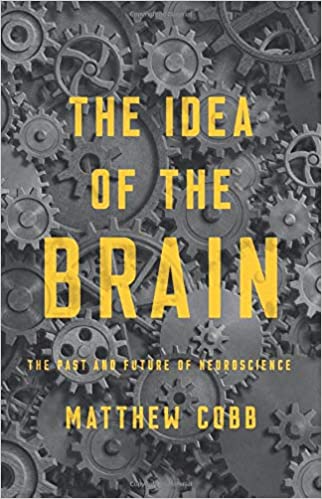 The Idea of the Brain: The Past and Future of Neuroscience by Matthew Cobb
The Idea of the Brain: The Past and Future of Neuroscience by Matthew Cobb
Published in April of 2020.
There is this idea that I have. An idea that I expect will occupy most of the rest of my academic career. That idea has to do with the future of higher education, and it goes something like this:
Universities change by moving their institutional structures in ever-greater alignment with learning science.
That's it.
Institutional structures cover everything from incentives to policies to investments to organizational arrangements. Policies around hiring, tenure, and promotion (or adjunct recruiting) and decisions about which building to build (or not build) all fall within the umbrella of institutional structure.
We create and recreate our universities. Their designs and operations are not divinely decreed. We make them. And if we choose, we can make our universities operate in a way that aligns (or not) to what we are learning about how people learn.
Surely other things matter than learning science in determining the future of the university. Of course. Everything matters, from demographics to public policy to technological advancements. A theory of university change that puts learning science at its heart does not need to ignore all of these forces. This theory predicts that they will play out at an institutional level in a way that is mediated by advances in learning science.
This big idea about how universities will change - if it is a big idea - brings us to The Idea of the Brain. If we are going to put learning science at the core of a theory that attempts to predict the future of the university, we need to recognize that we are thinking about the brain. The brain, after all, is where learning happens.
The Idea of the Brain is one part intellectual history, one part an overview of neuroscience. It is helpful to ground contemporary understandings of how the brain works in centuries of thinking about its structures and function. Throughout history, humans have used different metaphors to understand the workings of the brain. These stories have progressed from the brain as analogous to a machine, to plumbing, to electrical wiring, to a telegraph, and more recently to a computer. As we know today, none of these metaphors is very accurate, and the comparison of the brain with a computer has likely set-back popular understanding of brain function.
What comes across most strongly in The Idea of the Brain is how little we still understand its workings. Cobb, a professor of biological sciences, believes we are decades if not centuries away from human-brain like artificial intelligence. Consciousness remains as much a mystery today as at the birth of the modern field of neuroscience in the 1950s. We've made astounding advances in areas such as brain imaging, yet we seem to be no closer to a theory of the brain that would allow us to replicate its functioning in silicon or software.
That we still understand so little about how the brain's physical structures evolved to create conscious thought should not dissuade us from the goal of advancing the science of learning. We may not understand the brain well enough to create true artificial intelligence, but we know a great deal about how the brain learns.
If our goal is to align our universities with learning science, one place to start is to situate the study of the brain as a foundational element of a liberal education. A cross-discipline reading of The Idea of the Brain seems like an excellent place to start.
What are you reading?
"Idea" - Google News
November 30, 2020 at 05:40AM
https://ift.tt/2Vi6NYQ
Learning Science, Institutional Change and 'The Idea of the Brain' | Learning Innovation - Inside Higher Ed
"Idea" - Google News
https://ift.tt/2VWDFI5
https://ift.tt/3d3vX4n
Bagikan Berita Ini














0 Response to "Learning Science, Institutional Change and 'The Idea of the Brain' | Learning Innovation - Inside Higher Ed"
Post a Comment